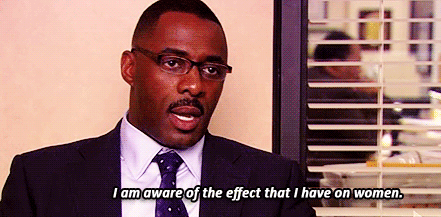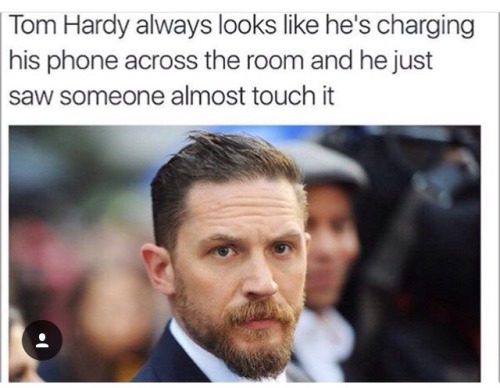It’s five answers to five questions. Here we go…
1. My coworker is keeping a notebook about me
I have been at my company for over four years. I have a coworker who for the past two years has been keeping a notebook about me. He puts several things in there to account for his day, but I am the only coworker mentioned. I have been told he is keeping account of his day because he has been put on Performance Managements (fancy word for write-up) before because he does not meet his quota for the day.
My issue is that he puts in there when I take my break, who I talk to, how long I talk to them, etc. And often times, he puts that I take my break for several minutes when in fact I wasn’t on my break at all; I was called away to do other duties. I have brought up to management the fact that if he is taking account of his day, then why is my name written all over that book? He doesn’t mention any other coworkers’ break times or their whereabouts. (I know all this because he left his book out in another workstation and someone took a picture and sent it to me.)
He has been very unprofessional with me to the point where he’s dragging two other coworkers on the same path with him. He has “shoulder checked” me on a few occasions. I have brought this to management several times and they have done nothing about this. Is there anything I can do? It has been causing me a great deal of stress because it has gotten to the point where I feel like I’m being stalked. Is there anything I can do about this?
If your managers have even a tiny amount of sense, this is going to make your coworker look ridiculous and won’t reflect on you at all. I totally understand why this is aggravating, but the best thing you can do is to ignore it.
Your coworker has been warned that he’s not meeting expectations. The best thing he could do is to focus on improving his performance. Instead, he’s keeping a journal about other people. That is not likely to end well for him.
He’s presumably trying to make a case that if you’re not in trouble for your work habits, he shouldn’t be either — but as long as you’re doing your job well, I would try very hard not to worry about this. You’ve already talked to your managers about this, so they know it’s happening.
To be clear, they should tell him to stop and that they want his attention on his own work, not on yours. But since you can’t make them handle it that way, all you can really do here is to roll your eyes and ignore it.
However, the shoulder-checking is not in any way okay (and frankly is the more serious issue), and you absolutely have standing to insist that’s addressed, including going over your manager’s head if necessary. Instead of calling it “shoulder-checking,” call it “deliberate pushing,” because that’s what it is and that might help drive the point home that it’s unacceptable.
2. Should I say something about my coworker’s old self-harm scars?
I (a man if that matters) was talking to a coworker (a woman if it matters) and her sleeves were rolled up. As we were talking, I noticed a series of parallel white scars on both of her arms that are pretty clearly deliberate.
I’m a little bit unsure of what, if anything, I should do. On one hand the ones I saw are old and my one inclination is to say that people’s mental health histories are their own thing and are not something that is discussed at work, plus she might become self-conscious about the scars if she realizes I noticed them. But on the other hand, they’re evidence of unhealthy coping strategies and she might appreciate an offer of help (even if it’s just “hey you should talk to a doctor, here’s the number”). For what it’s worth, we’re in completely seperate departments with completely seperate management chains.
It’s kind of you to want to help, but you should leave it alone. They’re old scars, there’s no indication that she needs immediate help, and I’m sure she wants to be able to roll up her sleeves without having doctors’ phone numbers pushed on her (especially by people she’s not emotionally close to).
3. Can I ask for advice from businesses that might be competitors in the future?
So I currently have a full-time government attorney job that I plan on staying in for about eight more years to get student loan forgiveness. I’m already looking forward to the future and have realized that I actually – really really – want to start a business of my own, and am specifically looking at something like a cat café and/or a bookstore (or a cat bookstore!). I would love to learn more about these businesses before I start one on my own and have been considering reaching out to owners and managers at these businesses to ask for informational interviews (which are super common in the legal field) and possibly the chance to shadow them at work and learn more about their business. I’m not entirely certain how to go about doing this, though, as these are of course, plans that likely won’t come to fruition for many more years, and I’m also essentially asking people for free help so I can then become their competitor eventually. Do you think this is a thing I could do without stepping on toes? And if so, how would I go about conveying this desire without putting my foot in my mouth?
Yeah, it’s true that it might not go over well to ask a business owner to coach you on how to become their competitor … so what about instead contacting a business that isn’t local? If your job doesn’t prohibit it, you might even be able to arrange a barter where you offer some limited amount of legal work (as an individual, not as a representative of your employer) in exchange for their time, depending on what kind of law you practice. (I’m told by commenters that was terrible advice.)
An alternative would be to try to get a very part-time job at one of the businesses that appeals to you, but that would be a significant time investment and possibly not practical.
4. Can I ask if my job is going to be phased out?
I’m currently about three-quarters of the way through a two-year contract with a board of a professional association in Canada. This is the second time I’ve had a contract with them, so it’s been over three years of work with this organization. It’s a very active board — I’m currently working about 22.5 hours a week, mostly on operations/member management, and they do the bulk of the budgeting, annual planning, financial controls, etc. The board is going through a strategic planning process, with an aim to reduce their workload, which I think is great. But they’re talking about taking on a staff person, probably someone like an executive director or an operations coordinator.
Should I ask what they’re planning for my role? I really like my job, and would hate to lose it. I have a good rapport with the executive committee, and I would like to be able to throw my ring into the hat, if appropriate, for whatever “next step” role they’re planning. It would be nice to know if they’re planning to keep my role and bring on another layer of management, and a relief to know that it will be phased out, just so I know. Either way, I don’t want to appear needy or presumptuous or out of touch, but if they are planning on eliminating my role, I’d like some notice (other than my two weeks of contract-mandated notice). It’s not a situation where I would quit out of spite — I would happily finish my contract — but is there any elegant way of asking what my future is here?
Absolutely! You can say, “Are you able to give me any sense of what’s likely to happen to my role under this new structure?” Depending on the answer to that, you can also say, “If it does turn out that my role will be phased out, I’d be really grateful if you can tell as soon as you know so that I can start lining up other work for once my contract here ends.” And if it sounds like you might be qualified for whatever new role they’re planning, you can also say, “I’d love to be considered for that, if you think I might have what you’re looking for. Is there anything I should do to ensure the board knows I’m interested?”
5. The hotel workers at a conference I have to attend are on strike
My workplace hosts an annual convention. This year, the hotel workers union from the conference location is holding a strike during the convention. I strongly support labor rights and workers’ right to strike. It troubles me that by working the convention, I’ll be complicit in undercutting the strikers’ legitimate demands. I don’t want to support the hotel over the workers, or the ‘scabs’ over brave people advocating for themselves. However, I don’t think I am in any position to show any helpful support. I don’t know what to do.
The organization I work for is, thankfully, an ethical one. I understand why they don’t want to cancel their annual conference–an event that educates and helps nationwide/worldwide professionals in the field. The organization officially has no position, no comment re: union strikes. Also, I have not worked with this business for long (less than 1 yr). I occupy probably the most unskilled, lowest-paying, most junior gig in the organization. It seems wildly inappropriate to advocate for canceling the conference or any solidarity of that nature. Especially since my job is the first I’ve ever had that allows me to live independently, have good health insurance etc. Personally boycotting the conference just seems like a good way to annoy my colleagues, and get out of their good graces without, y’know, impacting the strikers’ collective bargaining needs. Seems like it’d only hurt me or at the very least not help anyone. If I could afford to, I thought I might donate to the union to offset my participation in the conference, but I really can’t afford to.
The kernel of my rambling question is: Is there anything appropriate I can do as an individual to support workers’ rights in this situation? What do you think?
I’m throwing this one out to readers to see what suggestions people have.
my coworker is keeping a notebook about me, should I say something about my coworker’s self-harm scars, and more was originally published by Alison Green on Ask a Manager.


























